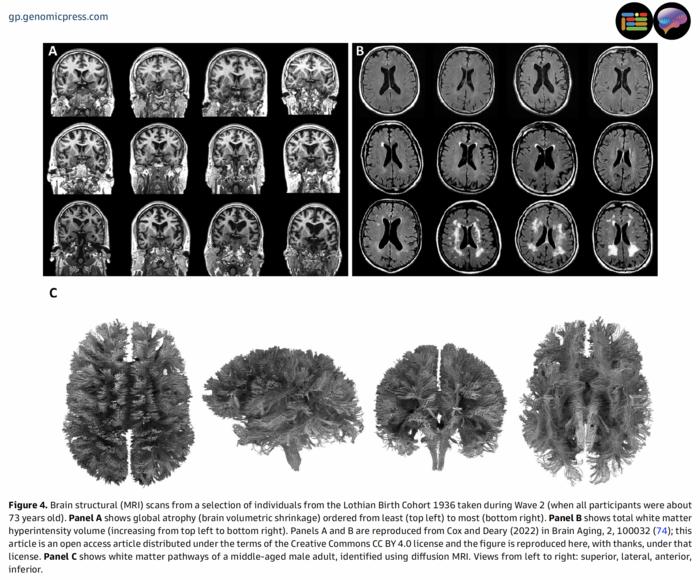Summary: A landmark Scottish research program tracking cognitive abilities from age 11 to 82 has revealed that childhood intelligence accounts for nearly half of cognitive performance in older age. The Lothian Birth Cohorts study, spanning over seven decades, provides unprecedented insights into how our brains age and what factors influence long-term cognitive health.
Journal: Genomic Psychiatry, November 7, 2024 | Reading time: 6 minutes
The Power of Early Intelligence
How much of our mental sharpness in old age is determined by childhood intelligence? According to new research published in Genomic Psychiatry, the answer is more than previously thought. The study reveals that cognitive abilities measured at age 11 can predict mental performance seven decades later.
“What’s particularly fascinating is that even after seven decades, we found correlations of about 0.7 between childhood and older-age cognitive scores,” notes Professor Ian Deary from the University of Edinburgh. “This means that just under half of the variance in intelligence in older age was already present at age 11.”
A Unique Research Opportunity
The study’s foundation rests on a remarkable historical event: the Scottish Mental Surveys of 1932 and 1947, which tested nearly every child born in 1921 and 1936 in Scotland. This comprehensive baseline provided researchers with an unprecedented opportunity to track cognitive changes across entire lifespans.
Using advanced brain imaging techniques, the research team documented substantial variations in brain health among people of the same chronological age. These differences raise important questions about the factors that influence cognitive aging and the potential for intervention.
Challenging Conventional Wisdom
The findings overturn some common assumptions about cognitive decline. The research suggests that what we often attribute to aging might actually reflect differences present since childhood. This insight fundamentally changes our understanding of brain health and how to preserve it.
Beyond intelligence, the study uncovered connections between early cognitive ability and longevity. Higher childhood intelligence correlates with better survival rates, while specific DNA methylation patterns can predict mortality risk.
Looking to the Future
These discoveries open new avenues for understanding brain health across the lifespan. They raise crucial questions about the role of environmental factors in maintaining cognitive abilities and the potential for midlife interventions to preserve mental function in later years.
Glossary
- DNA methylation: A biological process that can modify gene activity without changing the DNA sequence
- Cognitive ability: Mental capabilities including memory, learning, and reasoning
- Longitudinal study: Research that follows the same subjects over an extended period
- Brain atrophy: The loss of brain cells and connections between them as we age
Reader Comprehension Quiz
- What percentage of older-age intelligence variance was present at age 11?
Answer: Just under 50% (half) - What was the correlation found between childhood and older-age cognitive scores?
Answer: 0.7 - Which historical events provided baseline data for the study?
Answer: The Scottish Mental Surveys of 1932 and 1947 - What was one key finding about childhood intelligence and longevity?
Answer: Higher childhood intelligence correlates with better survival rates
Enjoy this story? Get our newsletter! Subscribe here
If our reporting has informed or inspired you, please consider making a donation. Every contribution, no matter the size, empowers us to continue delivering accurate, engaging, and trustworthy science and medical news. Independent journalism requires time, effort, and resources—your support ensures we can keep uncovering the stories that matter most to you.
Join us in making knowledge accessible and impactful. Thank you for standing with us!

